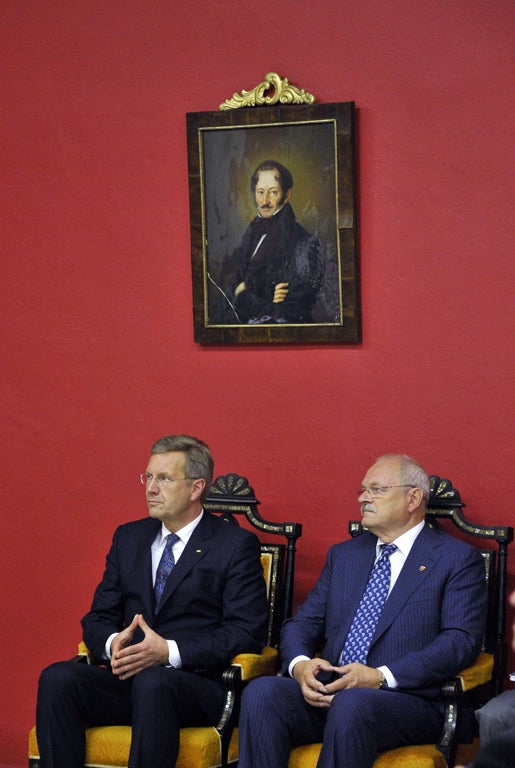One last barrier to Greek bailout – but Slovakia just won't budge

Pressure was mounting yesterday on Slovakia, the newest member of the eurozone, to drop its opposition to the expanded EU bailout fund as the country looked set to be the main stumbling block in the way of final ratification of the €440bn (£379bn) package.
Austria yesterday followed Germany in backing the eurozone's €250bn increase to the European Financial Stability Facility (EFSF). That leaves only three of the single-currency region's 17 governments – Malta, Holland and Slovakia – still to ratify the measure.
The Dutch and Maltese governments are expected to give their approval soon. But stiff opposition has surfaced in Slovakia from the junior partner in a four-party coalition government.
Slovakia, which joined the eurozone in 2009, is due to ratify the bailout fund in mid-October. But the leader of the country's Freedom and Solidarity Party has threatened to vote against the package. If carried out, his threat would block the bill's passage through parliament as Slovakia's opposition parties have said they will also oppose the measure and not come to the aid of the remaining parties in the governing coalition.
"The rescue fund is simply buying time in an incredibly costly way, but it's not solving the problems," Richard Sulik, Slovakia's Freedom and Solidarity party leader, told German television.
Echoing views of scores of other MPs in other European parliaments who oppose the project, he said: "If the euro crumbles it will be because of said massive deficits in individual countries, not because we rejected the rescue fund."
Intense political wrangling is underway in Slovakia to persuade Mr Sulik and his party to change its mind. Eurozone countries which have already ratified the bailout are expected to step up the pressure on Slovakia over the coming weeks.
Observers were predicting yesterday that Slovakia's coalition could be offered a face-saving clause which would enable it to officially approve the bailout but opt out of its contribution in an emergency. The other possibility under discussion was that remaining eurozone countries would pick up Slovakia's share of the rescue package.
Lüder Gerken, of Germany's Centre for European Politics, told Der Spiegel that Germany could be asked to up its share of the EFSF package by a billion euros if Slovakia refused to pay up. The Greek Prime Minister, George Papandreou, yesterday held talks with the European Council chief, Herman Van Rompuy, and the French President, Nicolas Sarkozy, to try to show them Athens can meet the demands of the austerity programme imposed on it.
Inspectors from the International Monetary Fund, the European Central Bank and European Commission were in Athens to assess whether Greece qualified for its next €8bn of bailout money to avoid bankruptcy in October.
Subscribe to Independent Premium to bookmark this article
Want to bookmark your favourite articles and stories to read or reference later? Start your Independent Premium subscription today.

Join our commenting forum
Join thought-provoking conversations, follow other Independent readers and see their replies